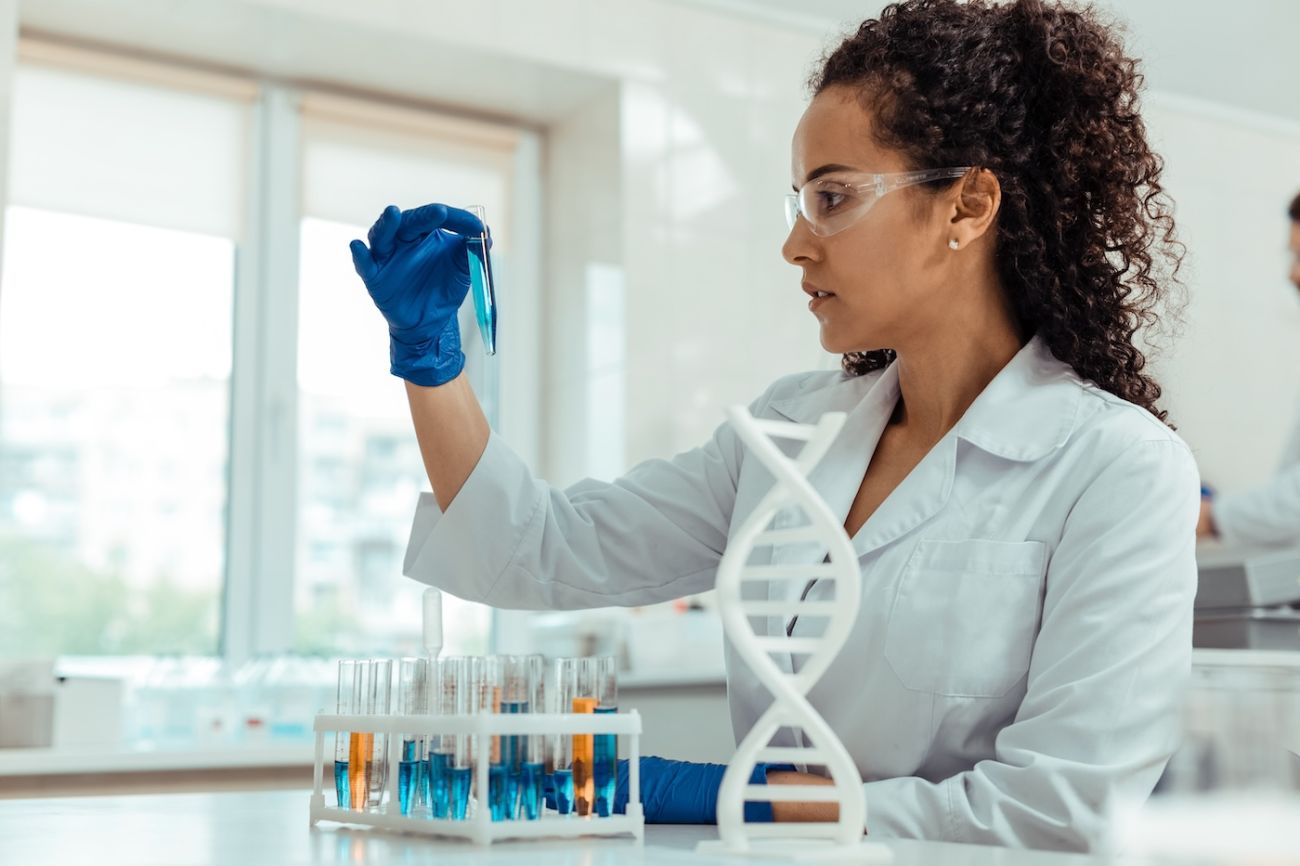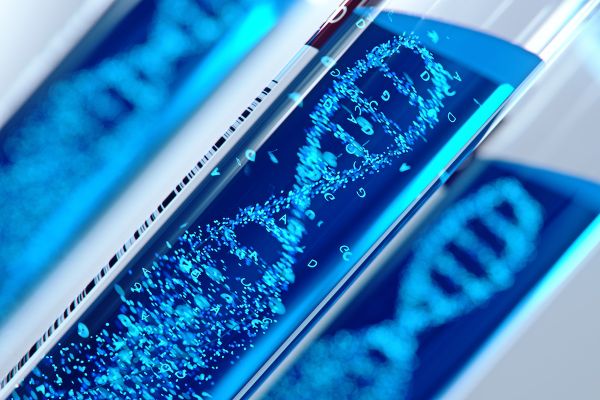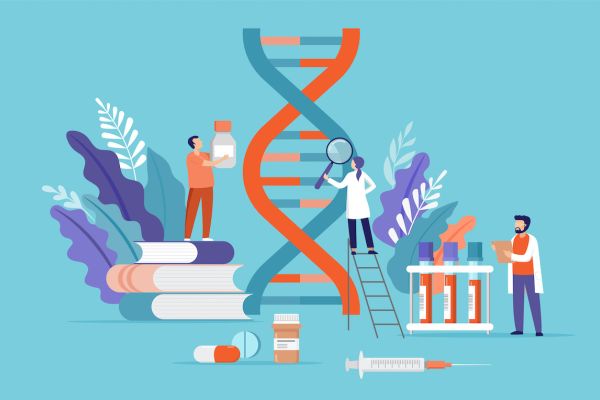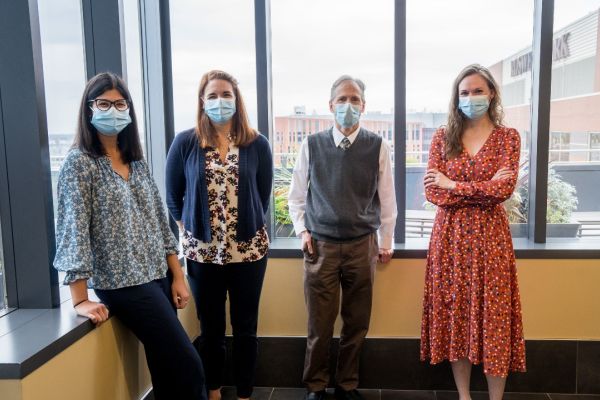A rare family trait may increase your risk of colorectal and uterine cancer
Lynch syndrome is a rare, inherited risk for cancer that affects an estimated 1% of the general population. It is caused by a genetic change, or mutation, in one of five different cancer genes (MLH1, MSH2, MSH6, PMS2, EPCAM), and increases the risk of several different types of cancer, commonly colorectal and endometrial (uterine) cancer. Other cancers seen in families with Lynch syndrome include stomach cancer, ovarian cancer, pancreatic cancer and urinary tract cancers.
“Although Lynch syndrome is the most common cause of hereditary colorectal and endometrial cancer, only about 3% of these cancers are related to Lynch syndrome, which can be suspected based on someone’s personal and family history of cancer,” says Katherine Latina, MS, CGC, a certified genetic counselor at Roswell Park Comprehensive Cancer Center.
Both men and women can have Lynch syndrome, and the most common way to confirm it is through genetic testing. “A number of red flags that we see in a family may cause us to think of Lynch syndrome,” says Latina.
Red flags that suggest you might have Lynch syndrome include:
- Multiple family members with colon or endometrial cancers.
- A family member diagnosed with a related cancer, such as colorectal or endometrial cancer before age 50.
- Multiple family members with the same cancer type or related cancers on the same side of the family.
- A family member with multiple Lynch syndrome-associated cancers.
- A family member with a known mutation in one of the five genes associated with Lynch syndrome.
If you have cancer, another way you can be screened for Lynch syndrome is through genetic testing on the cancer tumor, called immunohistochemistry (IHC) and microsatellite instability (MSI).
“IHC and MSI screening are done on Lynch syndrome-related cancers to see if certain markers are missing that may suggest an inherited Lynch syndrome mutation. Genetic testing would then be done on a blood sample, or in some cases a saliva sample, to confirm if someone has Lynch syndrome,” says Latina.
Why consider genetic testing?
If you believe you may be at high risk for hereditary cancer syndromes based on your personal or family histories of cancer, we can help.
Does everyone with Lynch syndrome get cancer?
No, but you need to know your cancer risk is higher than the average person. How much higher the risk is also will depend on the specific gene that has the mutation. “Each gene associated with Lynch syndrome has a different risk, so the likelihood of developing cancer would depend on which genetic change your family carries,” Latina explains. “Being aware of your risk can help you, your family, and your doctors be more proactive in managing any increased risk.”
For example, the risk for colon cancer among the general population is about 4%. But for those with Lynch syndrome, depending on the gene involved, their risk for colon cancer can be as high as 60%.
If you have Lynch syndrome, getting cancer screenings at an earlier age, and more often, is critical to detecting signs of cancer at an early stage and possibly preventing cancer. Your personal screening recommendations also will depend on which Lynch syndrome gene is involved, but often include:
- Colorectal cancer screening with colonoscopy, starting as young as age 20-25 and repeated every 1-3 years.
- Gynecologic cancer screening: Women should consider undergoing hysterectomy with removal of the ovaries and fallopian tubes once they have completed childbearing, with endometrial biopsies every 1-2 years starting at age 30-35.
- Pancreatic cancer screening (for families with a history of pancreatic cancer). This may involve endoscopic ultrasound and/or MRI.
Other testing that you may undergo every 1-2 years may include:
- Upper gastrointestinal tract screening with endoscopy
- Urinalysis
- Skin exams
“In addition to increased cancer screening, there is consideration of taking a daily aspirin which could reduce the risk of future cancer. The decision should be made with your doctor after discussion of risks, benefits and other factors to determine who should take aspirin and at what dose,” Latina says.
Lynch syndrome and family generations
Once Lynch syndrome is diagnosed in a family, parents, siblings and children have a 50% chance of having the same genetic mutation. “It is important to share this information with all relatives, including grandparents, aunts and uncles and cousins. All family members should talk with their doctors about genetic testing because these genetic changes can come from either your mom or your dad’s side,” advises Latina.




